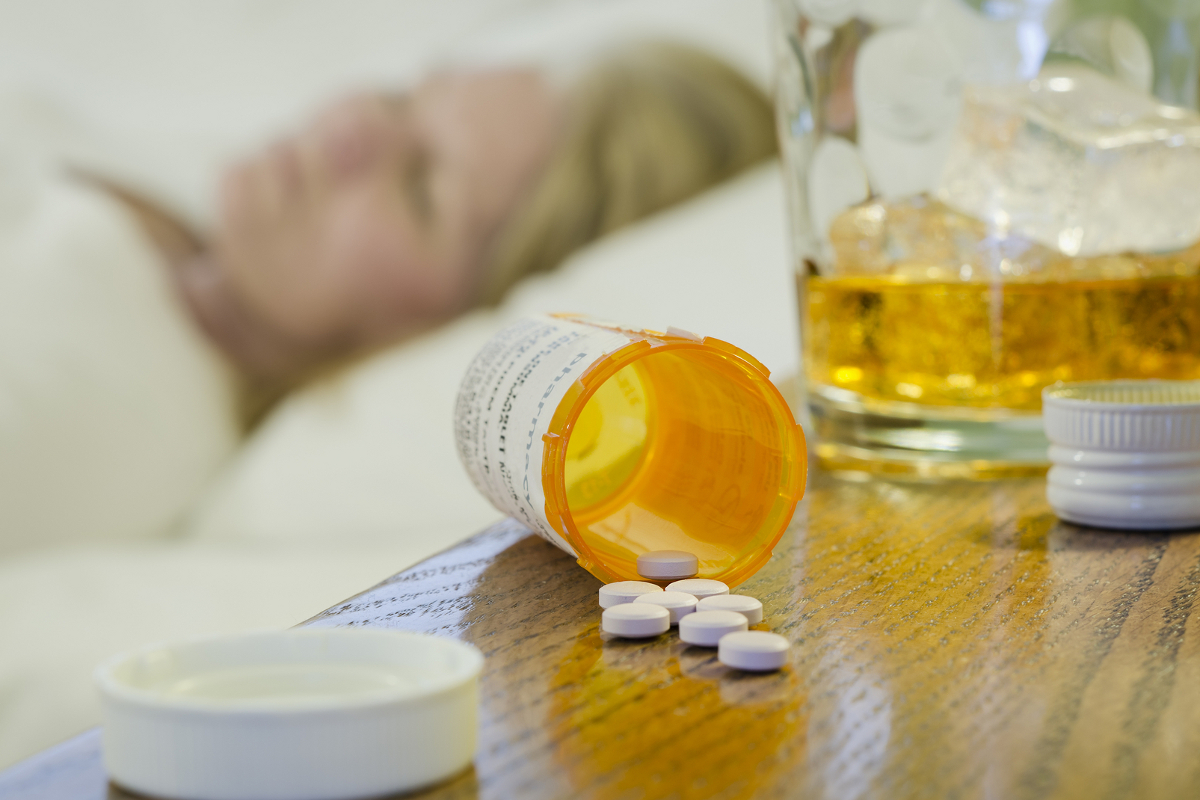
The question regarding whether consuming alcohol with prednisone is deleterious has been controversial. Thus, it becomes important for one to grasp the facts before taking a step further.
Prednisone comes under the category of drugs called corticosteroids. Taking prednisone along with alcohol may cause severe interactions. This notion, however, may be termed partially theoretical. Nevertheless, prednisone and alcohol, must not be blended in any ratio whatsoever as prednisone is a strong corticosteroid. Besides, consuming alcohol in conjunction with prednisone also depends on your general well-being and tolerance levels.
Consuming prednisone combined with alcohol may be harmful, but it depends on the individual’s health and situation, too. There are certain conditions during the course of which alcohol must not be consumed if the medication prescribed is prednisone. This drug is prescribed in order to avoid transplant rejection. The immune system may reject the transplant, considering it to be a foreign body, where it tries to destroy it. When your body resists acceptance of the transplant, it is called rejection, and to prevent this occurrence, prednisone is prescribed. Conditions, such as ulcerative colitis, or peptic ulcers may aggravate if alcohol is consumed while on the dosage of prednisone. Doctors recommend not to consume alcohol while on medication due to the reactions it can have in the body. Besides, the intake of alcohol while you are on any form of medication may spell disaster for your system. The condition, too, may take longer than necessary to recede its intensity.
⇆ Prednisone and alcohol consumption may have adverse effects on the liver and cause gastrointestinal inflammation (affecting the stomach and intestines), which can lead to stomach ulcers and gastrointestinal bleeding. This is due to the fact that both, prednisone and alcohol are known to irritate the stomach lining, thereby aggravating the condition. The side effects may be severe, hence it is better to avoid the consumption altogether.
⇆ Another condition known as ulcerative colitis is the inflammation of the colon, marked by the eruption of ulcers on the intestinal walls. A detection of ulcerative colitis may urge the doctor to recommend prednisone in order to mitigate the severity of the condition. However, those who consume alcohol may cause the symptoms to intensify. Besides, if your symptoms have ceased, it is no indication that you may begin the consumption of alcohol all over again. Remember, your symptoms may worsen than what you experienced during the previous eruptions. Thus, for your system to revert to normalcy, besides redressing the health of your colon, avoid combining alcohol and prednisone.
⇆ To summarize the section, prednisone and alcohol side effects can differ from individual to individual. Their interaction can affect some people in an adverse way, and not affect others at all. Also, prednisone and alcohol reactions can be different in the case of different drugs. They can lower the energy level in your body and your resistance power. Hence, it will take more time to get cured in case you are suffering from any disease. Therefore, it is better to avoid the consumption. The interaction can be harmful to the liver as both are broken down there. People suffering from diseases, like hepatitis A and B, HIV, or tuberculosis may endure serious side effects in the long run.
Undermentioned are the negative effects of prednisone, and its interaction with alcohol may aggravate the condition.
» Your blood pressure may keep fluctuating; predominantly, it remains high.
» You may also observe a rise in your appetite; this may lead to weight gain.
» You may feel dizzy at times; a sense of lethargy may cloud you on most occasions.
» Abdominal dysfunction due to peptic ulceration may cause discomfort.
» Muscular weakness and chronic muscle spasms may be experienced on and off.
» Hair follicles become overactive in nature and increase the growth of facial hair along with an increased hair growth on the back, arms, and legs.
» Acne and rash is experienced on the face and back.
» Mood swings, depression, and disorientation bring about a negative outlook toward life.
» There is a risk of developing osteoporosis and rheumatoid arthritis over the course of treatment.
» Vision distortion, cataract, and glaucoma may lead to a weak eyesight.
» You may experience ulceration in the mouth.
» You may endure what is referred to as steroid-induced diabetes while adhering to the prescribed dosage.
» Intumescence, commonly regarded as swelling, may ensue on the face, arms, and legs; the most prominent site being the face.
» Singultus or hiccups are known to frequent the system.
» There is marked increase in the frequency of urination.
☛ Doctors advise their patients not to consume alcohol, especially in the first phase of therapy when the possible side effects of prednisone have to be understood. With the coupling of alcohol with prednisone, the doctor and the patient may find it difficult to decipher if consequent effect is of prednisone dosage, or is it alcohol that is causing the aggravation of the condition. It is necessary to note that a small quantity of alcohol may be introduced, if and when the doctor is absolutely certain about the fact that your system is in the position to tolerate the consumption. However, if after the introduction, symptoms are found to reappear and aggravate, cessation of alcohol consumption may be advised.
☛ Besides, if the patient has been a drinker, the doctor will prescribe a few tests to determine the degree of liver damage, if any, due to excess alcohol consumption. Know that liver enzymes are a requirement in order to convert prednisone into prednisolone. However, if the liver enzymes are found damaged, they may not be efficient at activating the drug. The dosage of the drug has to be increased, or another corticosteroid drug needs to be prescribed to control the symptoms of the condition.


